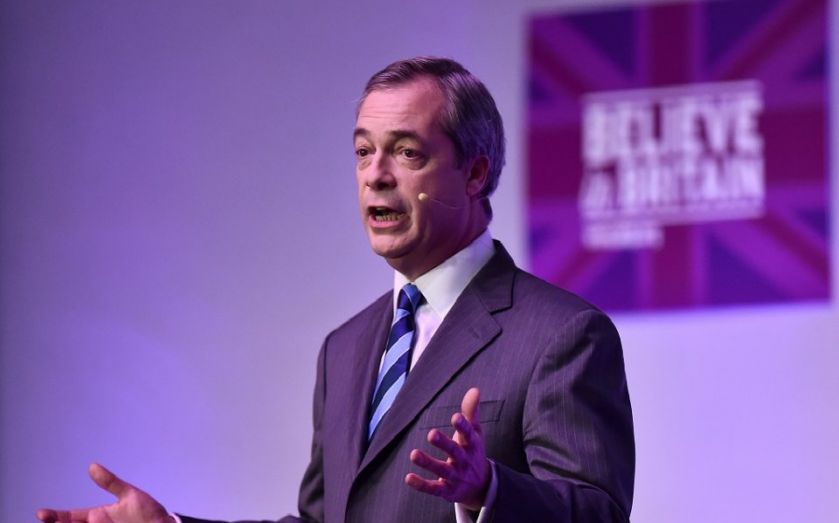Sorry, Nigel Farage, Judeo-Christian nationalism is no answer to failed multiculturalism

What’s the best way to fix the problems created by state-sponsored multiculturalism? According to Nigel Farage, it’s using government power to confirm the worst fears of minority communities.
Farage recently made his debut appearance at the Conservative Political Action Conference, just outside of Washington, DC. He used his time in front of American conservatives and libertarians to tout the notion that government sponsorship of “Judeo-Christian values” is what’s needed to get both Britain and the United States back on track.
On the same day, Farage interviewed with The Daily Caller and called state-sponsored multiculturalism a driver of radical Islam within Britain, the United States, and more broadly, Western Europe.
While Farage is correct to point out that state-sponsored multiculturalism creates an array of tensions and potential problems, he is completely wrong to suggest that using the power of the state to create a “Judeo-Christian” monoculture is the correct solution. Instead, Farage should recognise that it’s a mistake to think that governments can or should deliberately promote any sort of culture at all.
As the past few decades have shown, state-sponsored multiculturalism is not the proper or helpful role of Western, democratic governments. Policies of this kind have created a rift in British society, causing the progressive values of minority protection and egalitarianism to collide with the classical liberal values of free speech, choice, and toleration.
The best thing that Britain can do is take a step back from the culture wars and recognize that civil society should take the lead in answering what culture should look like. At the same time, that doesn’t preclude the government from taking a firm stance against the violation of individual rights and the foundational values of democracy—namely, free speech.
Tolerating other people’s ideas and lifestyles is necessary and helpful for cultivating a free society—provided that other individuals are not being harmed in the process. Truth is not always obvious, but it emerges from interactions within the marketplace of ideas.
To be clear, we shouldn't have any allusions that this conversation will always be easy or comfortable. The freedom of speech doesn’t also include the freedom from offence, but the conversation itself is necessary and it should occur organically.
Farage rightly sees religious fundamentalism and intolerance as a grave threat to Western democracy, but it’s pure hypocrisy to suggest that instituting a culture of intolerant nationalism is the proper solution. We cannot trust government censors to suppress the wrong ideas or “destructive cultures.” If we give into Farage’s notion, then we are no better than the ruinous theocratic ideas that so many of us are trying to renounce.